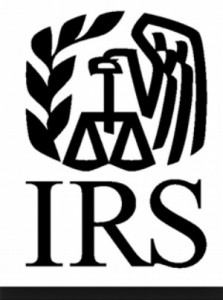WASHINGTON D.C.
 The Crédit Agricole Corporate and Investment Bank, a corporate and investment bank owned by Crédit Agricole S.A. and headquartered in Paris, agreed to forfeit $312 million and enter into a deferred prosecution agreement for violating U.S. financial sanctions, officials announced today.
The Crédit Agricole Corporate and Investment Bank, a corporate and investment bank owned by Crédit Agricole S.A. and headquartered in Paris, agreed to forfeit $312 million and enter into a deferred prosecution agreement for violating U.S. financial sanctions, officials announced today.
The financial institutions were being prosecuted by the U.S. Attorney’s Office of the District of Columbia for violations of the International Emergency Economic Powers Act or IEEPA and the Trading With the Enemy Act or TWEA.
Credit Agricole and Investment Bank employ more than 7,000 employees in more than 30 countries, according to authorities.
A one-count felony criminal information and a related civil forfeiture complaint were filed today in federal court in Washington D.C. charging Crédit Agricole Corporate and Investment Bank with conspiring to defraud the United States, and commit violation IEEPA and TWEA.
Crédit Agricole Corporate and Investment Bank waived federal indictment.
It agreed to the filing of the information and civil forfeiture complaint and accepted responsibility for its criminal conduct and that of its employees, officials said.
Crédit Agricole Corporate and Investment Bank will pay $156 million to the U.S. Attorney’s Office and $156 million to the New York County District Attorney’s Office, officials said.
 The New York County District Attorney’s Office also announced today Crédit Agricole Corporate and Investment Bank entered into a separate deferred prosecution agreement, admitting it violated New York state law by falsifying the records of New York financial institutions, according to authorities.
The New York County District Attorney’s Office also announced today Crédit Agricole Corporate and Investment Bank entered into a separate deferred prosecution agreement, admitting it violated New York state law by falsifying the records of New York financial institutions, according to authorities.
District Attorney Cyrus R. Vance said: “Over the course of our investigation, it was revealed that subsidiaries of Crédit Agricole illegally moved hundreds of millions of dollars through the U.S. on behalf of clients in Sudan, Iran, Cuba and Burma. This type of conduct requires the bank be held accountable, and I would like to thank all our partners for their efforts to ensure that our financial system is protected.”
The bank also entered into settlement agreements with the Treasury Department’s Office of Foreign Assets Control or OFAC, the Board of Governors of the Federal Reserve System, the New York County District Attorney’s Office and the New York State Department of Financial Services or DFS.
In total, CACIB will pay $787.3 million in criminal and civil financial penalties.
“Sanctions laws are critical to both our national security and foreign policy interests,” said U.S. Attorney Channing D. Phillips. “CACIB, through its subsidiaries, violated our laws and our interests by conducting business on behalf of entities in Sudan. CACIB’s subsidiaries succeeded in these efforts, in large part, by hiding their conduct from CACIB’s employees in the United States.”
Adding, “In this case, the overwhelming majority of the unlawful conduct occurred at a foreign subsidiary that no longer exists. Although CACIB moved quickly to end these unlawful transactions and fully cooperated with investigators, today’s resolution demonstrates that there will be significant consequences for any financial institution that allows its foreign subsidiaries that do not intend to respect U.S. law to, nevertheless, access the U.S. financial system.”
According to documents released publicly today, these are the allegations:
- Between August 2003 and September 2008, the Crédit Agricole Corporate and Investment Bank subsidiaries in Geneva moved approximately $312 million through the U.S. financial system on behalf of sanctioned entities located in Sudan, Burma, Iran and Cuba.
- Specifically, during this time period, the Crédit Agricole Corporate and Investment Bank subsidiaries employed deceptive practices that concealed the involvement of banks designated as Specially Designated Nationals or SDNs and other corporate entities in financial transactions that transited through the United States.
- This deprived the United States and the Crédit Agricole Corporate and Investment Bank’s New York branch and other U.S. financial institutions of the ability to screen sanctioned payments.
- The bank’s conduct caused about $312 million in unlawful transactions to go through the U.S. financial systems—although nearly all of the bank’s violations involved Sudanese business organizations.
- The Crédit Agricole Corporate and Investment Bank subsidiaries also unlawfully caused transactions on behalf of clients located in Burma, Iran and Cuba to unlawfully go through the United States as well.
- The Crédit Agricole Corporate and Investment Bank’s employees were aware of U.S. sanctions against Sudan.
- The Crédit Agricole Corporate and Investment Bank admitted that its employees permitted 11 Sudanese banks to maintain U.S. dollar accounts with Crédit Agricole Corporate and Investment Bank —six of the Sudanese banks were SDNs.
- The Crédit Agricole Corporate and Investment Bank’s subsidiaries relied primarily on non-transparent payment messages, known as cover payments, to mask the unlawful payments that were sent through the United States.
 In addition to the financial penalties, the Crédit Agricole Corporate and Investment Bank agreed to a cease and desist order, taking certain remedial steps to make sure it complied with U.S. law and to pay a civil monetary penalty of $90.3 million.
In addition to the financial penalties, the Crédit Agricole Corporate and Investment Bank agreed to a cease and desist order, taking certain remedial steps to make sure it complied with U.S. law and to pay a civil monetary penalty of $90.3 million.
The Crédit Agricole Corporate and Investment Bank also agreed to employ a compliance consultant for a period of one year and pay a monetary penalty of $385 million. The Treasury Department also levied a fine of approximately $329.5 million, which will be satisfied by the payments to federal and local agencies.
This case was investigated by the IRS and the FBI.

